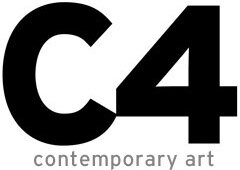|
MD You mention creation. Do you see yourself as one that interprets or translates what the work wants to be or as someone inventing it from scratch? Do you listen to your works?
AK – I do not translate. I repeat processes again and again. Continually re-working is a process in fact of listening, re-iterating. Re-watching, looking again and again and again. The same problems. Repetition comes to be not just a repeating as the word says but also a kind of a meditation on a particular condition.
Duchamp would say "The effect of being an artist on the artist is more important than the work is":
MD - Do you ever visit your pieces after they have been "born":? Do you ever go back to see them again?
AK - Yes, obviously there are some I like more than others. There are some that sustain me and others that seem to change or I changed.
MD - Let's talk about light. You've been working a lot with pieces that are based on light. The ancient Greeks used to believe that light comes out of the eyes to illuminate the world. Your work with light emanates light. In concept what is the source of light for you? How do you deal with light?
I always felt very concerned with the viewer. I feel I don't make work for somebody else, I make what I make for me. Yet I am very concerned with the viewer, in a sense that art is very good at intimacy and very good at a specific address. Most of my works demand that you look at them from a particular place. That seems to say that there is this very specific quite formal address. The work demands a certain kind of passage. That of course doesn't answer your question of light, but it does say something about the ritual of looking.
I would say that more than light, yes, much of my work is about darkness.
MD Which is a form of light, or at least the absence of it. Which is related to the idea of light.
Darkness is a very interesting condition.
Light is something if you like, that we wake into. My instinct it's that it is not an internal condition. Light is cultured and educated, while darkness is uncultured and uneducated and deeply within in our unspoken story. From Dante to Freud to the Devil, we live, if you like, an internal darkness. The fact that we know it, each one of us, is both frightening and intimate.
I've made works over the years that deal with that internal darkness. The whole of western philosophy is based on the idea that Plato sat in the cave, metaphorically, looked up to the light and said "let there be progress":.
Freud looked at the back of the cave, and maybe we're still looking at the back of the cave. Maybe there in the uncanny darkness in the drain, under the toilet, under the bed, it is much more frightening and revealing, where things begin.
I have made lot of work with black and blue, particularly blue, because blue is a colour that much more deeply reveals darkness than does black. From a phenomenological point of view your eyes can't quite focus on blue.
MD You did study perception …
AK - I think the interplay between the phenomenological, the perceptual, and the psychological is the heart of what makes art. Over the last so many years almost everything I have made is red.
Red is a colour of the earth, it's not a colour of deep space; it's obviously the color of blood and body. I have a feeling that the darkness that it reveals is a much deeper and darker darkness than that of blue or black.
Turner's idea about colour was that colour was to be viewed in its relation to white, light always towards light. Everything I ever made I think, goes the other way. From red to black. It's the way that red recedes into darkness. It's the way that blue becomes dark. That is mysterious.
I'm not interested in composition. I want to find absolute conditions. if I make something red it's not red in relation to something else. It's red in the same way that when you put your hand into the water it is wet. So I want the red as red as water is wet.
MD- What is the color of your homeland?
AK- White. Oh my homeland? I'm sure it's red.
MD - Why do you say that you have nothing to say?
AK - I'm talking about a process here. I'm talking about the content of the work. When I say I have nothing to say I mean literally I have nothing to say. Of course as a man I feel very strongly about politics, about the environment etc. If I had something to say as an artist I think I would be a bloody awful artist, I might as well be a journalist.
If you like, the truth that the artist looks for comes from the interaction between the process of making and the meanings that arrive out of that process. One has to listen to them. Then there's something, maybe to work with. Until then there's only one's psychobiography.
RETURN TO MAIN ANISH KAPOOR PAGE
reference from source: http://www.anishkapoor.com/writing/brazilinterview.htm
|




 Untitled, 1983
Untitled, 1983 Mother-as-Void, 1989-90
Mother-as-Void, 1989-90
 Untitled, 1983
Untitled, 1983

